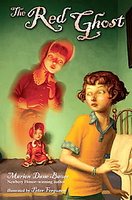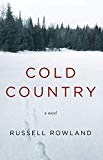
As part of my research for a new project, which I wrote about in
my last TMT post, I am reading
Scott Young's book, Ultralearning, in which he describes a method for quickly learning sometimes complex subjects. "Quickly" is a relative term in this case, since he's often talking months, not days, and sometimes a year.
Can we fiction writers adapt some of his methods for the kind of research/learning we need to do to create characters, settings, and even plots? Inquiring minds want to know, right?
A Case Study/Experiment
Young starts out his book with some lengthy case studies, a model for many nonfiction books I've read the last few years. I'm at the 22% point in the book (yes, I am reading an eBook edition), and case study-type examples have continued to come up. So I thought that in my discussion of the book, I would use my own project as a case study. This will also give me an opportunity to immediately start trying to apply his material to my work. Thus, friends, I am not actually using research to avoid working. I'm not. Come on.
I'm going to jump right into a discussion of
Principle 1, Metalearning.
Learning About Learning About Your Subject
Metalearning is learning about learning. It's not learning facts about your subject
but "learning about how knowledge is structured and acquired within this
subject; in other words, learning how to learn it." In
the short-term, you have to learn about metalearning, learn how to do it. In
the long-term, once you've learned how to do it and have experience with
the general skills, it should be easier for you to put together additional ultralearning experiences. This probably explains why Young has so many examples of people
learning multiple languages. Once they've figured out how to learn one new language, it's easier to learn additional ones.
Metalearning involves:
- Seeing how a subject works
- Determining what kind of skills and information must be mastered
- Finding what methods are available to master those skills and information
To do that, you ask three questions.
Why Do You Want To Do This?
You need to know why you want to learn something so you can focus your project on exactly what matters
most. Knowing this will help you evaluate different study plans to create one that fits with your goals. For writers--Are you learning this for a character? To create a
world?
Our Case Study: I want to do an ultralearning project related to history because I have a character who is a senior in college with a history major. I want his knowledge of history and, more importantly, how to do research to figure into the plot.
Right now, I don't know what kinds of research he would know how to do or what his own historical interests are. He has a history podcast at this point, but I don't know what he does with it.
What Concepts, Facts, And Procedures Do You Need To Know/Learn?
- Concepts--Anything that needs to be understood. Concepts are ideas you need to understand in order to make them useful. Some fields straddle concepts that need to be understood and facts that need to be memorized. Young gives law as an example. I wonder if history isn't another.
- Facts--Anything that needs to be memorized.
- Procedures--Anything that needs to be practiced. Procedures may need to be performed without much conscious thinking, which was the case during my eleven years studying taekwondo. (Probably not a candidate for ultralearning.) Last week I was reading about oral history. Interviewing for oral histories may be a procedure.
Once
you have ideas relating to concepts, facts, and procedures, you can determine which areas will be
the most challenging and search for methods and resources to overcome
them.
Our Case Study: My own traditional history study back in the day was long on facts,
short on concepts and procedures. My reading of history since college
has usually been books on specific subjects, not survey books. Meaning they were long on research and analysis. My guess is research is a concept and a procedure that a
more serious history student than I was would be learning now. I fudged
that.
At this point, I decided to look at my college transcript to see what I'd studied. I have a bit of a history background. Shouldn't that help me plan an ultralearning experience?
I was described as a secondary education major with a major concentration in English and a minor concentration in history. Because I was taking education courses and spent a semester student teaching, I probably didn't take the same number of courses in my major and minor concentration areas that traditional liberal arts students would have. Thus I have only seven history courses under my belt. Which is two more than I thought I had.
American History to 1865
History of Western Civilization
U.S. History Since 1876
History of France
History of Greece
History of England
Another History of England
History of Women
I had some kind of fantasy about studying all history from the Greek period, which is why Greece is in there. Otherwise, except for the History of Women class, this looks very much like general western world history courses, something I wouldn't be particularly interested in now. Some of them may have been requirements, or they may have been part of my not very well thought out plan to study history in a linear way from the Greeks to the late twentieth century. Because back then, America and Britain would have been how people thought of studying history, and probably in a very generic wasp America and Britain sort of way. Oddly enough, I remember that History of Women class as being a stand-out in terms of American history content.
My shallow and all-over-the-place background in history is a problem for my present writing project. I want my character
to have a particular historical interest by the time he reaches his
senior year in college, and these generic western survey classes aren't
going to be helpful. Or interesting.
Speaking of interesting: I thought to study Canadian literature when I was in college (it was offered at the University of Vermont when I was there) and was disappointed that two semesters of that didn't offer French Canadian lit in translation. But it never occurred to me to look for a Franco American history class. In fact, it may have been a decade after I got out of school before I even heard of the term Franco American.
Wait! Wait! I've got something! My history student is named LaSalle. He's descended from French Canadian mill workers. I've read Ghost Empire,
How the French Almost Conquered North America by Philip Marchand, and I recently stumbled upon an independent historian in Maine who specializes in Franco American immigrant history in New England. Perhaps my character's field of interest could be Franco American history.
How You'll Use Resources, Environment, and Methods For Your Ultralearning Project
Benchmarking: Finding the common ways people learn the skill or subject you're interested in, so you can
design a default strategy to begin. Benchmark-reference point.
- Look
at the curricula used in schools to teach the subject. Can be a course
list or syllabus for a single class.
Emphasize/Exclude Method: Go through your benchmarked materials and determine what you want to emphasize and exclude.
Our Case Study: I had already thought of checking out college history departments for courses on methodology and had even begun collecting and reading on-line articles on things like theories of history. But Young says, "The
literature on self-directed learning, as typically practiced,
demonstrates that most people fail to do a thorough investigation of
possible learning goals, methods, and resources. Instead they opt for
whatever method of learning comes up naturally in their environment."
Certainly I've been doing my benchmarking in a very haphazard way, stealing away time for it in bits and pieces. (For instance, I did some searching of New England college Franco American history sites while I was watching TV last night.)
Our Case Study Results From Principle 1:
- Coming up with a field of interest for my character is a big break-through, though it seems somewhat unrelated to ultralearning. It will, however, give me something to plan an ultralearning history program around.
- The benchmarking business confirms something I was already doing and encourages me to make a better effort with it.
I'm excited to find out what Principle 2 is.




















